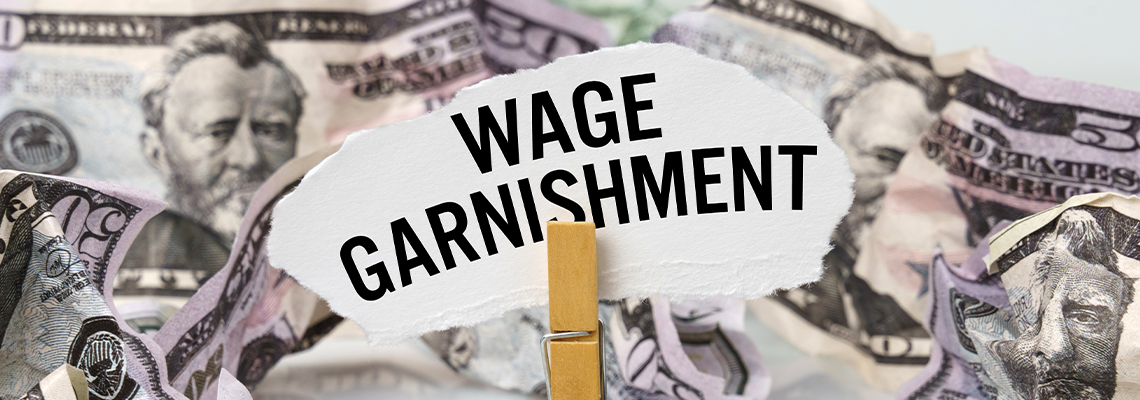
Understanding Wage Garnishment
According to a 2019 report by Northwestern University, one in every 100 workers has had their wages garnished at some point, resulting in an average loss of 11% of their gross earnings. Many more workers, though, can experience wage garnishment even greater than this—up to 25% of their wages garnished.
If your wages are currently being garnished or you’ve just been informed they’re about to be and you want to learn about your options, reach out to us at Hoke Law Firm. We’re proud to serve individuals in Baton Rouge, Louisiana, as well as the neighboring areas of New Orleans and Lafayette.
Understanding Wage Garnishment
Before we discuss what to do about wage garnishment (also called “wage attachment”), we need to go over the basics about what exactly wage garnishment is. Essentially, this can happen anytime you’re past due on your debt obligations and your creditor successfully sues you for nonpayment. They can then receive a money judgment against you from the courts which allows your employer to start holding back a portion of your wages each pay period to be put toward this past-due debt and sent directly to your creditor.
Types of Debts Eligible for Garnishment
There are several different types of debt that may be eligible for wage garnishment:
Past due child support or alimony
Federal student loans
Unpaid taxes
Past due credit card debt
Unpaid medical bills
Outstanding court fees
Typically, creditors are limited to only taking up to 25% of your disposable income, but in some cases, this can be higher. Disposable income is any money earned after your employer has already made their mandatory deductions like state and federal taxes, Social Security, and unemployment taxes. It’s also worth noting that although most private creditors must go through legal channels to obtain a money judgment, if you owe money to the IRS, they can sometimes go directly to your employer for wage garnishment without going through the courts first.
Laws Addressing Wage Garnishment
There are both state and federal laws and protections that dictate how wage garnishment can be imposed on individuals. One federal law is found under Title III of the Consumer Credit Protection Act (CCPA). This law protects employees who have had their wages garnished from being fired by their employers as well as setting limits on the total amount that can be garnished in any given week. This law is in place because wage garnishment can place an undue burden on the employer to withhold the wages and send them instead to the creditors, and it stops them from taking actions against the employee in retaliation.
Louisiana laws on wage garnishments are very similar to federal laws. Specifically, Louisiana laws include limiting garnishments to 25% of your disposable earnings or when your total disposable earning from the week exceeds 30 times the federal minimum hourly wage.
How to Stop Wage Garnishment
Naturally, you’ll want to learn how you can stop wage garnishment. The quickest way to stop wage garnishment, of course, is by paying your debt off in full. However, this option won’t be realistic for all people. In this case, you may consider the following options:
Negotiate a payment plan: You may be able to reach out to your creditors and come to an agreement on a payment plan in exchange for them lifting the garnishment.
File an objection: In other cases, you may wish to file an objection with the courts. However, for this option to work, you’ll need to show a clear legal basis for why the garnishment is illegal.
File for Bankruptcy: Individuals may choose to file bankruptcy in an attempt to stop wage garnishment.
One of your best options to stop wage garnishment is to file for bankruptcy, but this won’t work under all circumstances. In many cases, filing for Chapter 7 or Chapter 13 bankruptcy will stop all wage garnishment by putting an automatic stay on your account. When you file Chapter 7 bankruptcy, any eligible debts can be eliminated completely. If these debts are part of your wage garnishment, the garnishment will cease, immediately. Under Chapter 13 bankruptcy, you’ll develop a repayment plan to address past-due debt and many times this will address the debt related to your garnishment.
There are times, though, when bankruptcy won’t stop wage garnishment. For example, almost all domestic support obligations like alimony or child support cannot be discharged during bankruptcy and you will still owe this. Additionally, past due taxes as well as federal student loans also cannot be wiped out with a bankruptcy declaration but the filing of a bankruptcy will stop any collection activity pursuant to these debts.
Understand and Fight for Your Rights
If you’re in the Baton Rouge, Louisiana area and want to learn more about your options for stopping wage garnishment, contact our team at Hoke Law Firm. We are honored to offer trusted legal guidance to individuals who need it the most. Set up a consultation to discuss your debt relief options today.